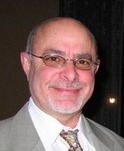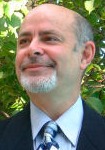How much of an embarrassment is Pasadena psychiatrist Stuart Shipko to the profession of psychiatry?
 |
| Dr. Stuart Shipko has no training in forensic psychiatry which may explain why he has a professional reputation of incompetence among colleagues |
Take for example his work in his first criminal case, The People v. Dennis Elliot Shellhouse, from August 2006 in Thousand Oaks, California. Dr. Shipko was brought in by Shellhouse's attorneys in the criminal trial in August of 2006 as a defense expert witness in psychiatry.
On June 7, 2005, Dennis Elliot Shellhouse, 46, traveled from Phenix City, Alabama to Thousand Oaks, California to carry out a kidnap-for-ransom plot on the Burtzloff family, whom at the time were residents of Lake Sherwood in Thousand Oaks.
Shellhouse posed as a courier delivering legal documents to gain entry into the gated community where the Burtzloff residence was. Once inside, he brandished a gun to threaten the victim Jamie Burtzloff, 35, in order to gain entry into her home and then subsequently threatened her housekeeper with his gun.
When a friend of the victim came up to the walkway, Shellhouse told Burtzloff to get rid of her. The victim instead opened the door and mouthed the words, "Call 911." The friend ran to her car and drove away.
He then ordered the victim to pack a bag of clothing and get in his van. When Shellhouse tried to force Burtzloff into his van, a neighbor saw the victim struggling with the assailant and asked if she was alright, to which she responded, "No!" The neighbor quickly called the police.
 |
| Dr. Stuart Shipko of Pasadena has no credibility as a psychiatrist in the courts |
"Following the defendant's arrest, the Ventura County Sheriff's Department conducted an extensive investigation that included traveling to Alabama to seize computer information from the defendant's home and workplace that revealed the defendant's research and planning of the kidnapping for at least six months," said Ventura County District Attorney Gregory Totten in a statement to the press.
In April of 2006, the defense hired disreputable Pasadena psychiatrist, Dr. Stuart Shipko, as an expert witness to evaluate the mental state of the accused during the crime, which occurred almost a year prior to Shipko's evaluation. Thus, Dr. Shipko was trying to make a retrospective diagnosis of the assailant a year after the events of the crime, which is not accepted practice in forensic psychiatry, but the courts didn't buy his testimony anyway as Shellhouse's lawyers did.
Shellhouse was found guilty in August of 2006 by a jury of his peers on charges of kidnap for ransom, criminal threats, residential burglary, and resisting arrest, all with special circumstances of using a firearm.
During the trial, Dr. Shipko, who had not had any forensic training in psychiatry, didn't even know as a psychiatrist that you can't evaluate the mental state of someone retrospectively in the past just from court records and from other psychiatrists' reports, but nonetheless, Shipko tried anyway and came up with a far-fetched psychiatric explanation of Shellhouse's state-of-mind at the time of the crime by stating the defendant was in a mental state of "unconsciousness resulting from involuntary intoxication caused by prescription drugs."
| Ventura County D.A. Gregory D. Totten |
Shipko came to his questionable medical conclusions despite the fact that he had no drug tests to back up his contentions that any drugs were in the defendant's systems at the time of the crime. The defense contended Dennis Shellhouse was on prednisone, Paxil, and Prosac at the time of the crime.
Shipko conjectured on the record that Shellhouse was suffering from "a substance-induced mood disorder manic type [sic]" when he carried out the attempted armed kidnapping. Shellhouse "was experiencing a manic episode when he took prednisone," and he "may have been in a manic state when he committed the crimes." He also testified that Shellhouse restarted taking Prosac which "might experience mania both when they start to take the drug and when they stop."
Even this convoluted argument of a mental state of "unconsciousness" didn't make any sense since mood disorders, such as manic disturbances, can't account for someone methodically planning out and researching how to carry out an armed kidnapping, six months in advance, or writing a ransom note just before undertaking the plan for kidnapping.
Besides that, the accused seemed to be able to recall the events of his crime to law enforcement officials at the time of his arrest, suggesting he was not "unconscious" of his criminal acts to any degree.
Shipko then contradicted his own testimony by mixing up his diagnoses by saying at the time of April 2006, Mr. Shellhouse was suffering from "a substance induced mood disorder manic type." The substance was Paxil, which had also been given to Mr. Shellhouse for depression. Shipko claimed Paxil caused Shellhouse to become "grandiose, inappropriately euphoric," but that explanation hardly explains symptoms of psychosis or unconsciousness. Clearly, Dr. Shipko was only indiscriminantly throwing out possible theories without any further proof of his claims.
Needless to say, the prosecution had a field day cross-examining Dr. Shipko and impeaching his qualifications and credibility as a forensic expert witness and his absurd testimony and cockamany theories under oath.
On cross examination, Dr. Shipko contradicted his own prior testimony under direct examination.
“Appellant told Dr. Shipko that he ‘liked the way it [prednisone] made him feel,'" the court record states. "The drug ‘gave him a euphoria.’ Appellant said that prednisone made him feel ‘edgy,’ which Dr. Shipko interpreted as meaning ‘more mentally acute.’ Appellant told Dr. Shipko that ‘he felt completely focused on the day he committed his crimes.’” (See p. 4, paragraph 5 of the appeal.)
“Dr. Shipko was not capable of diagnosing appellant's mental state at the time that the offenses had been committed," the court concluded. "He had ‘no opinion about whether [appellant] was exhibiting manic symptoms’ at that time. However, Dr. Shipko opined that appellant ‘was experiencing a manic episode when he took prednisone,’ and that he ‘may have been in a manic state when he committed the crimes.’ Dr. Shipko found it difficult ‘to assess the role of Prozac’ in the commission of the crimes.” (See p. 5, paragraph 1 of the appeal.)
The court concluded about Dr. Shipko's crackpot evaluation of Mr. Shellhouse:
The record contains no substantial evidence that, when he committed the offenses, appellant was unconscious due to involuntary intoxication with Prozac and prednisone. Dr. Shipko testified that these drugs could cause mania and psychosis. He never testified that they could cause appellant to become unconscious. Indeed, appellant told Dr. Shipko that ‘he felt completely focused on the day he committed his crimes.’ Furthermore, on cross-examination appellant testified that things were ‘crystal clear at the crime scene in Ventura County.’ (See p. 6, paragraph 2 of the appeal.)
The Ventura County D.A. was no less kind about their assessment of Dr. Shipko's qualifications and credibility as forensic psychiatric expert.
"He [Dr. Shipko] certainly wasn't qualified to render an opinion in a criminal case and he was pretty up front about that," The Ventura County D.A. said of Dr. Shipko. "He admitted that he has no experience whatsoever prior to this case in forensic psychiatry. He had never evaluated a criminal with regard to his mental state. He admitted that is a very specialized area of psychiatry...." (See p. 10, paragraph 3 of the appeal.)
As a result of Dr. Shipko's testimony and lack of credibility, not only was Dennis Shellhouse found guilty of the kidnapping plot, but his appeals was shot down without much deliberation from the appeals courts.
The key point the appeals court cited from the case and upheld was this, “The prosecutor was indicating to the jury that it should not rely on Dr. Shipko's expert opinion because he had no experience in forensic psychiatry and had not previously evaluated a defendant in a criminal case.”
After about two weeks after the appeal was rejected, Dennis Shellhouse was found dead in jail. There was no public press release by jail officials of what killed Mr. Shellhouse inside the jail, but Dr. Shipko's weak psychiatric testimony didn't give Dennis Shellhouse any hope to continue to fight.
Resources:
- The People of the State of CA vs. Dennis Elliot Shellhouse (11/29/2007) Court of Appeal of the State of CA, 2nd Appellate District, Division Six, 2d Crim. No. B194359, Super. Ct. No. 2005019146, Ventura County, CA
- "Kidnapper found guilty in Lake Sherwood incident," Thousand Oaks Acorn (08/03/2006)
- "Man guilty of Kidnapping," Whittier Daily News (07/27/2006)
- Press release of People v. Dennis Shellhouse, County of Ventura District Attorney (07/27/2006)
- People v. Dennis Shellhouse, Ventura County District Attorney Term Report 2003-2006, p.12-13 (2006)
- "Cops praise woman who resisted kidnapper," Thousand Oaks Acorn (06/16/2005)
- "Kidnapping suspect treated for dog bites, gunshot wounds," Thousand Oaks Acorn (06/16/2005)
- "Why did this 'great guy' snap? Bizarre incident has friends in disbelief," Daily News (06/09/2005)
- "Kidnap attempt leads to chase," Acorn (06/09/2005)
- "Attempted kidnapping ends in freeway standoff," Thousand Oaks Acorn (06/09/2005)
- “Friends describe man accused in freeway standoff as a family man, school volunteer,” SD Union Tribune (06/09/2005)
- “Friends: Freeway Suspect a Family Man,” Fox News (06/09/2005)

No comments:
Post a Comment